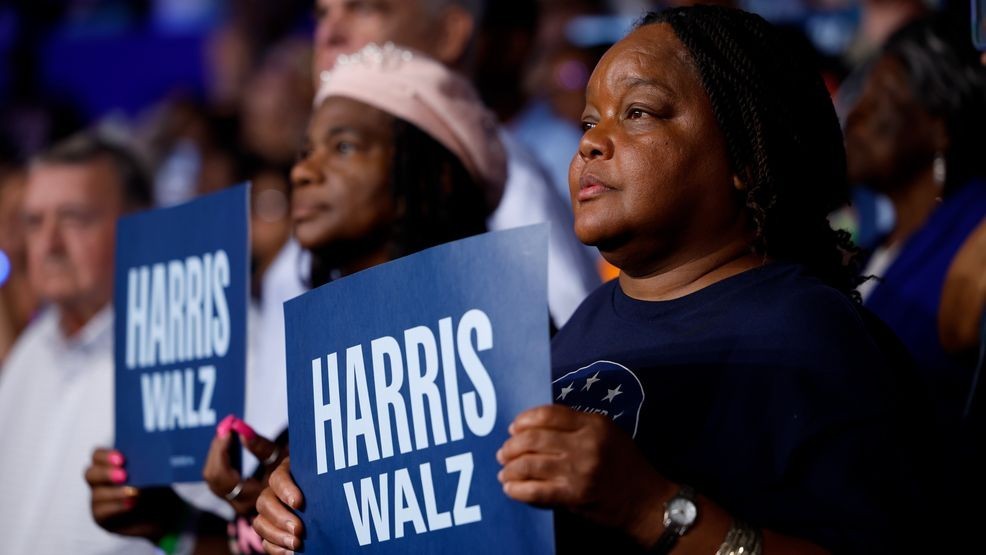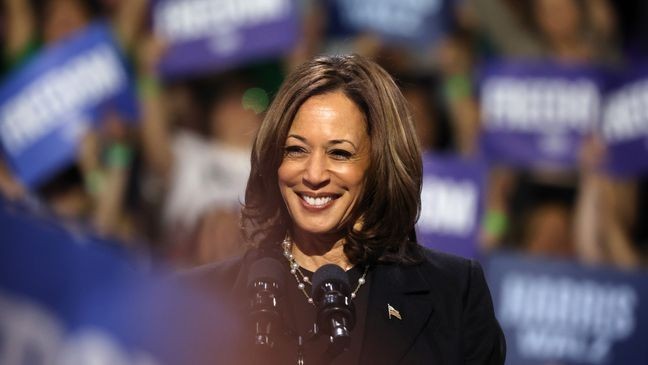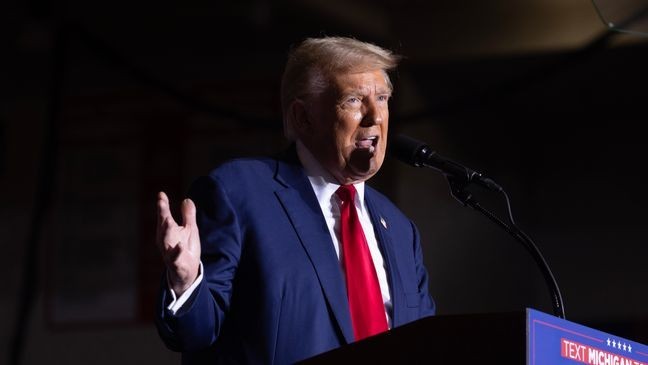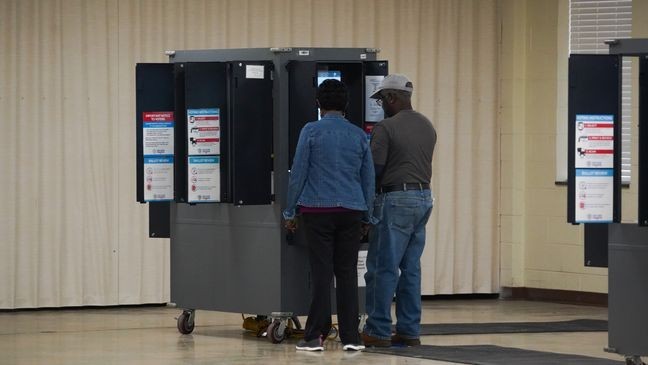Black voters vital to Harris, but will they come through for her?
(TNND) — Most Black voters are siding with Vice President Kamala Harris.
But a seemingly robust two-thirds or three-quarters majority of Black voter support might not be enough to propel Harris to victory in just under three weeks.
If history is any lesson, Harris will need closer to 90% of Black vote to defeat former President Donald Trump.
A new Marist poll, which shows Harris with an overall lead, also shows the vice president with 69% support among Black national registered voters.
A recent New York Times/Siena College poll found 78% of Black likely voters supporting Harris.
But consider that Biden needed 92% of Black support to defeat Trump in 2020. And Hillary Clinton got 91% of Black vote in 2016, according to the Pew Research Center, and still lost.
“If those numbers are anywhere in the ballpark, it's a huge deal,” Oklahoma State University politics professor Seth McKee said of recent polls showing Harris in the 70% range for Black support.
President Barack Obama got record levels of support from Black voters, who McKee said had been very strongly aligned with Democrats since the Civil Rights Movement and the 1964 election between Lyndon Johnson and Republican Barry Goldwater.
But McKee said part of the reason Clinton lost in 2016 was a slippage of Black support and a lack of turnout in key states like Michigan and in the city of Detroit.
On the flip side, McKee said President Joe Biden was catapulted to the Democratic nomination in 2020 thanks to South Carolina and its majority black Democratic primary electorate.
It’s “really hard to overstate” the importance of Black voters to the Democratic coalition, which includes other minority voters, young voters, women, and college-educated voters.
“I don't know what it's ultimately going to be, but from what we've seen repeatedly, it's certainly lower than you would hope for in terms of your coalition getting you across the finish line as the winner,” McKee said.
Obama tackled this issue a few days ago, talking to Black voters, and specifically Black men.
“I'm going to go ahead and just say some, speak some truths if you don't mind,” Obama said during a campaign stop in support of Harris. “Because my understanding based on reports I'm getting from campaigns and communities, is that we have not yet seen the same kinds of energy and turnout in all quarters of our neighborhoods and communities as we saw when I was running. Now, I also want to say that that seems to be more pronounced with the brothers. So, if you don't mind just for a second, I'm going to speak to y'all directly.”
Obama said Harris is the clear choice for Black voters compared to Trump, and he spoke about Harris’ shared experiences with Black voters.
Obama decried “reasons and excuses” for Black men “thinking about sitting out” this election.
“I've got a problem with that, because part of it makes me think, and I'm speaking to men directly now, part of it makes me think that, well you just aren't feeling the idea of having a woman as president,” Obama said. “And you're coming up with other alternatives and other reasons for that."
Obama touched upon some of the issues in the Black community that may have Black men second-guessing their vote, said Jatia Wrighten, an assistant professor of political science at Virginia Commonwealth University.
“(And) I think it’s important that this message came from a high-profile Black man,” she said via email. “I hope it resonates with Black men and they think about their sisters, mothers, grandmothers, aunts, and daughters.”
Wrighten is less alarmed than McKee at the level of Black support for Harris in recent polls.
“From past elections, we know that Black voters are nuanced voters,” she said. “Although they are steadfast Democrats, there is variation among the group. Additionally, we know that polls are not great at capturing minority groups, and even though it’s late in the game, it’s ‘early’ for Harris’ campaign - so the poll isn’t reflecting all Black registered voters."
Some voters are still trying to figure out who Harris is as a presidential candidate, given her unusually short stint atop the ticket following Biden’s departure from the race, Wrighten said.
Wrighten was confident that Black women would turn out for Harris.
McKee said the growing influence of the “diploma divide” on elections could help mitigate some losses of Black votes for Harris.
College-educated voters have become more likely to support Democrats.
The same Marist poll showed both gender and education gaps in voter support between Harris and Trump.
Harris had 63% support of college graduates who took part in the Marist poll. Meanwhile, Trump had 55% support from folks without a college degree.
Likewise, Harris had 58% support from women. Trump had 55% support from men.
McKee said Trump’s populist message seems to be resonating “across the board with lower-income voters,” regardless of race.
We saw a 120-year high in voter turnout in 2020. This election could also have high turnout.
Black voters have high rates of turnout in comparison to their population, so this shouldn’t be a turnout issue for Harris if she loses Black voters, Wrighten said.
McKee said if there’s a problem for Harris, it’s likely going to be one about preference and not participation.
“And that's a problem, because it's much harder to turn a preference than get someone to the polls,” he said. “That's just a much heavier lift.”
Either way, McKee said he’s expecting a “photo finish” race between Harris and Trump.




